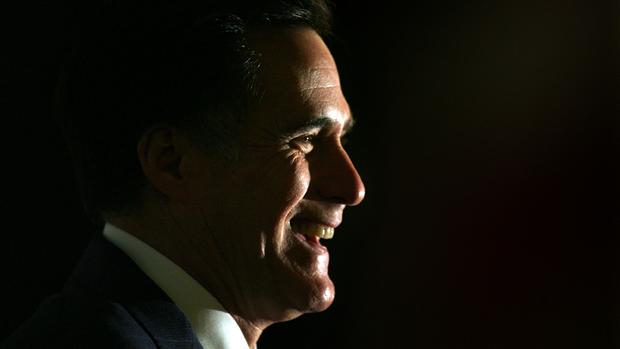Romney remains unloved - but it's his race to lose
DES MOINES, Iowa - The top story coming out of Iowa is former Pennsylvania Sen. Rick Santorum, who came from nowhere to essentially tie former Massachusetts Gov. Mitt Romney for first place in the Iowa caucuses. The former Pennsylvania senator will now see a boost in fundraising and support, and he can now claim the mantle as the consensus conservative candidate in the field.
"Game on," Santorum said when he spoke late Tuesday night.
Mitt Romney beats Rick Santorum by 8 votes
Full Iowa results
Iowa entrance poll results
Santorum's triumph here was built on the sort of retail politicking, and a dependence on a pastor network, he simply can't replicate on a national level; it also came in a caucus, which tends to attract party activists, not the more casual voters who decide elections. In 2008, another politician embraced by social conservatives, Mike Huckabee, won the caucuses with about ten points more support than Santorum took this year; he faded over the course of the national campaign. And Huckabee is widely seen as the stronger politician of the two.
Santorum has also not been seriously attacked. Texas Gov. Rick Perry and Minnesota Rep. Michele Bachmann, whom Santorum bested in the fight for Iowa's social conservatives, did take a few shots at Santorum over his support for earmarks, votes to raise the debt limit, and he past backing of fellow Pennsylvanian (and party-switcher) Arlen Specter. But Santorum has faced nothing like the attack ads Ron Paul's campaign and Romney's backers ran in Iowa to essentially destroy former House Speaker Newt Gingrich, and whether he will withstand such a barrage - or the increased scrutiny that will come with his increased profile.
Romney, meanwhile, attracted essentially the same level of support he did in 2008 - about 25 percent - though he spent much less money and time here this time around. For a candidate trying to claim the mantle as frontrunner, that's not exactly impressive. It suggests Republicans continue to have deep concerns about the former Massachusetts governor, who many distrust over his past moderate record.
Still, things could be much worse for Romney. Neither of the other two candidates in the top three are seen as likely nominees - Santorum for the reasons already mentioned, and Paul because polls suggest there is not enough support for his libertarian views in the Republican party to get him to the finish line. The two men who would likely have been bigger threats had they done well - Gingrich and Perry - finished in fourth and fifth, and the latter seems poised to leave the race.
Had Romney's advisers been told months ago that their biggest threats coming out of Iowa would be Paul and Santorum, they would have been giddy. It's no surprise that Romney spent much of his speech Tuesday night talking about President Obama, not his GOP rivals. Romney is focused on the general election because he can be; there is no other candidate in the GOP race with the momentum, positioning and infrastructure to plausibly claim a clear path to the nomination. Romney may be a weak frontrunner, but with this kind of competition, that weakness may well not make a difference.
Full GOP Primary Results
Full CBS News coverage: Mitt Romney

